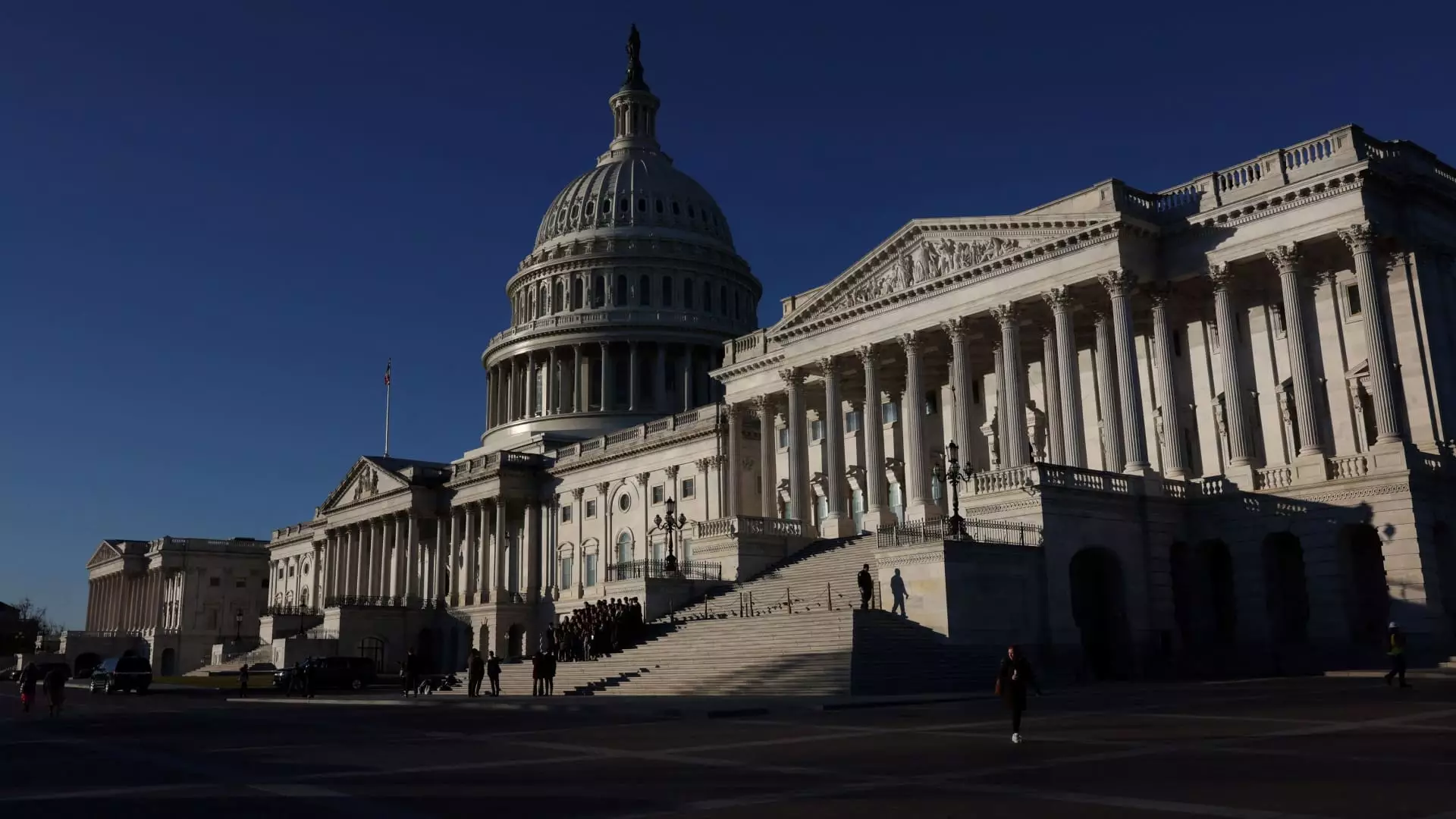In a crucial development, House and Senate leaders have come to an agreement on a short-term spending deal that would prevent a government shutdown in the upcoming weeks, according to three sources familiar with the matter. This deal aims to keep the government funded until March, allowing legislators more time to formulate longer-term spending bills that are specific to different agencies. It follows the agreement made last weekend, which determined the overall spending level for fiscal year 2024 at $1.59 trillion. The new arrangement also extends the deadlines for government funding for various departments from Jan. 19 and Feb. 2 to March 1 and March 8. To avoid a partial government shutdown, the short-term bill, commonly referred to as a continuing resolution or “CR,” must be passed by both the House and Senate before Friday at 11:59 p.m.
The recent spending agreement has faced resistance, primarily from hard-right Republicans who have voiced their objections to the top-line spending deal negotiated with Senate Democrats. Speaker Mike Johnson, in the face of pushback, has not wavered from his commitment to the agreement. However, the opposition persists, raising concerns about the stability of Johnson’s speakership. Several moderate Democrats have expressed their willingness to vote in favor of preserving the Louisiana Republican’s leadership if there is a move to oust him, drawing parallels to a situation in the previous year when Democratic Party members voted to remove former Speaker Kevin McCarthy, a Republican, due to a rebellion within his own party. Some of the same rebels are now making threats to Johnson’s position.
While moderates and conservatives grapple with the short-term spending deal, congressional Democrats have chosen to stand by the top-line spending agreement. They have praised the bipartisan deal and acknowledged the need for a short-term bill to allow for more negotiation. Senate Majority Leader Chuck Schumer and House Minority Leader Hakeem Jeffries, both Democrats from New York, released a statement expressing their support for the deal, stating that it creates an opportunity for Congress to act in the next few weeks, ensuring continued funding for essential priorities and avoiding a government shutdown.
The agreement reached by House and Senate leaders offers a temporary solution to prevent a government shutdown. By extending the funding deadlines and providing funds until March, legislators now have the opportunity to work on more comprehensive spending bills tailored to specific agencies. However, divisions within both parties pose challenges to the deal’s sustainability, with some Republicans seeking to undo the agreement and threatening the position of Speaker Mike Johnson. Despite the obstacles, Democrats remain supportive of the top-line spending agreement and emphasize the importance of maintaining funding priorities for the well-being of the American people. The short-term spending deal serves as a stopgap measure, allowing the government to function while negotiations on long-term funding continue.

Leave a Reply